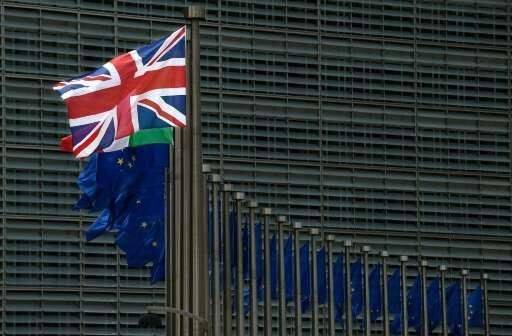Britain’s exit from the European Union may erode the bloc’s leadership role in fighting climate change and stymie crucial efforts to set more ambitious targets for cutting greenhouse gases, officials and experts said Tuesday.
The damage will become worse the longer the divorce proceedings drag on, or if Brexit inspires other EU nations to follow suit, they said.
European leaders meeting in Brussels pressured British Prime Minister David Cameron Tuesday to launch the two-year withdrawal process “as soon as possible”, but the embattled premier has vowed he will leave that task to a successor to be named on September 9.
When it comes to EU climate policy, “there is going to be quite a bit of uncertainty, transition and volatility for at least two years,” the UN’s outgoing climate chief, Christiana Figueres, told delegates to the Climate and Business Summit 2016 in London on Tuesday.
Britain’s own emissions reduction commitments—set in national law—are not likely to budge, even if global warming is unlikely to figure at the top of a new Conservative government’s agenda.
On the other side of the Channel, however, the impact could be significant, especially if other countries follow the UK’s example.
At a minimum it will create an accounting and administrative quagmire for governments because the formerly 28-nation bloc’s climate change commitments—inscribed in the landmark 2015 Paris Agreement—will need to be recalculated for the remaining 27 members.
“The EU would have to look at some recalibration of the effort on burden sharing,” said Figueres, referring to the internal negotiations on how European states divvy up the carbon reduction targets of the bloc as a whole.
New terms must likewise be negotiated for Britain—which imports nearly half its energy needs—for access to the European energy market.
Brexit will also be a major headache for businesses keyed into climate- and energy-related sectors.
Nightmare scenario
“Within the business community, the amount of management time that will be unnecessarily spent on this issue will distract from the very critical decisions we need to make,” said Peter Sweatman, CEO of Climate Strategy, an international consulting firm based in Spain.
In a highly competitive international environment, “we don’t have the luxury of focusing on non-productive things,” he said on the margins of the two-day London conference.
Some analysts worry that Britain’s exit will cripple the EU’s ability to increase its carbon-cutting goals—something scientists say all major emitters must do if Earth is to avoid calamitous climate change impacts.
“The role of Europe as a key political driver in setting ambition will be lowered,” said Nick Mabey, chief executive of E3G, a London-based environmental think tank.
“That will lower the overall global drive,” he told AFP.
“Pretty soon you find everyone veering off course for two degrees, and that’s when you get into dangerous zones of climate change.”
The Paris pact—headed for ratification later this year or in early 2017—calls for capping global warming at well below two degrees Celsius (3.6 degrees Fahrenheit), and 1.5 C (2.7 F) if possible.
But voluntary national pledges from some 190 nations to cut carbon pollution would still see Earth’s surface heat up by 3 C (5.4 F), compared to a pre-Industrial era benchmark.
How to close that “emissions gap” is arguably the most urgent question on the international climate agenda.
Historically, Europe—led in part by Britain—was a leader in the fight against global warming, often acting as mediator between other nations bickering over how to share out responsibility.
For European advocates of aggressive climate action, the nightmare scenario is further unravelling of the EU.
Far-right parties rising in the polls in the Netherlands and France, for example, have already called for Brexit-style referendums.
“If Europe really started to disintegrate, it would be hard to maintain any of its continent-wide policies -– car standards, clean energy, the energy market,” Mabey said.











